In my series of A-Z of N.Z. Locations, I will take you for a meander around areas that are unique gems, some yet to be polished though worth a visit for either historical reasons, culinary delights or for the sheer vistas.
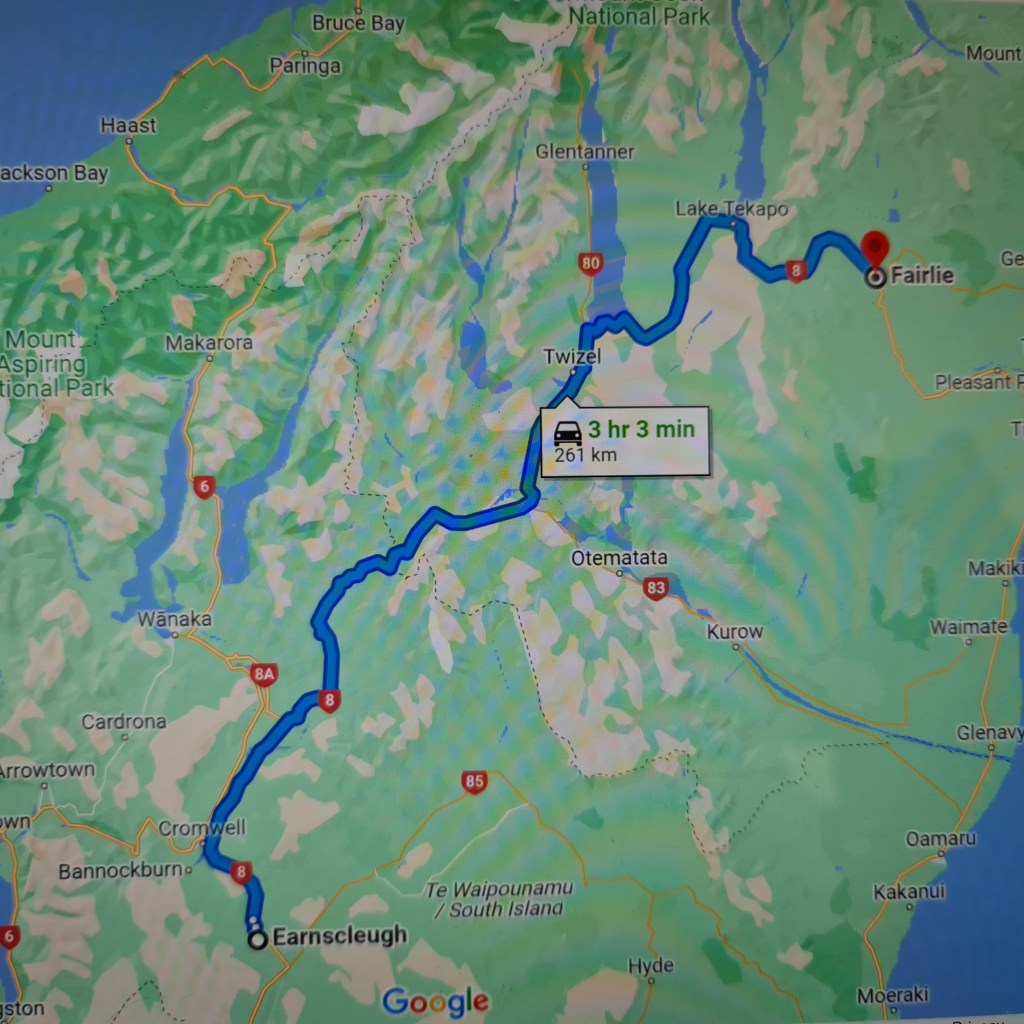
We’re turning around and heading north. What’s a road trip without a pie? One of the reasons we made a pit stop at Fairlie. We had the famous Fairlie pie and discovered more.
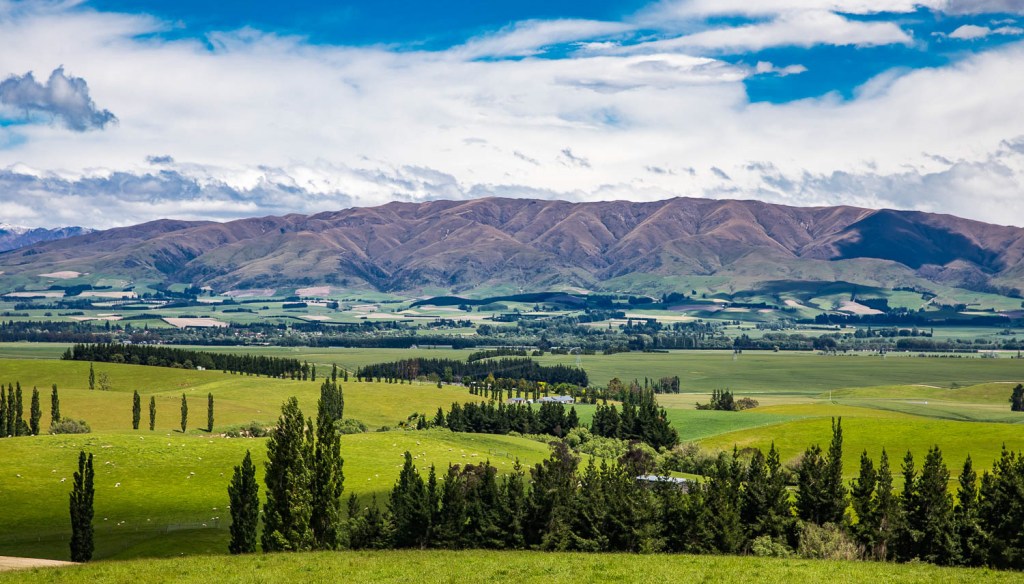
Fairie is set in a pleasant green landscape, heavily wooded with English trees and rolling pasture. On the arrival of Europeans, there wasn’t a tree to the seen, just the bare beauty of the Mackenzie Country. There were pre-European trees, once extensive totara forests in the valleys and tops. Maori burned these to hunt Moa, and they never returned. Fairlie was literally the end of the line.
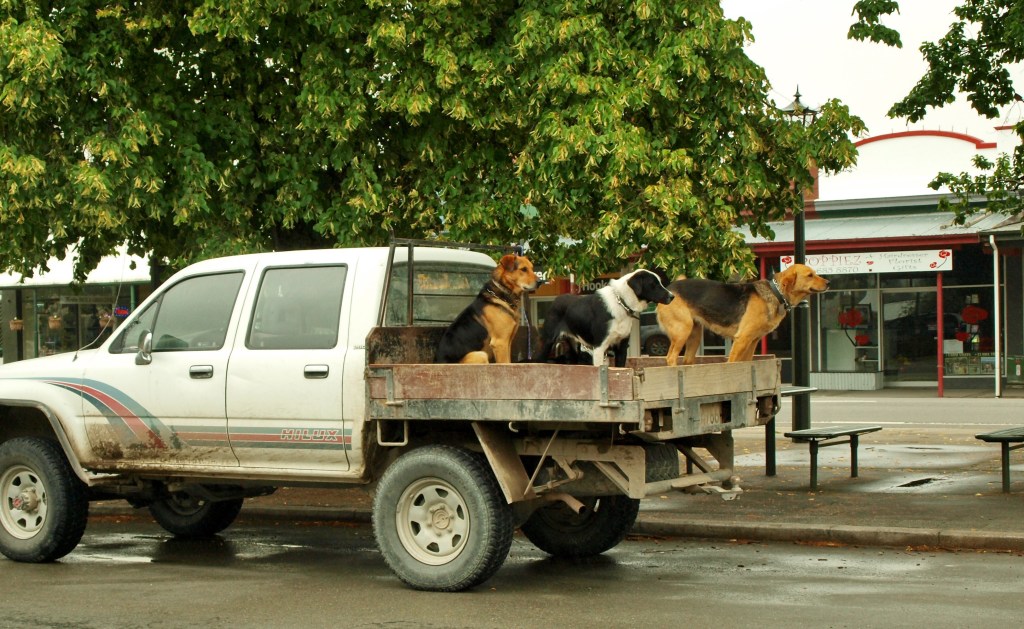
On our arrival, the gentle swaying of the Oak trees which line the main street cast shadows near historical buildings. Of course, there is more to those Oak trees than being decorative. They were planted in memory of the town’s fallen soldiers. Isn’t that a much better way to remember victims of war than a memorial statue to establish A Peace Highway?
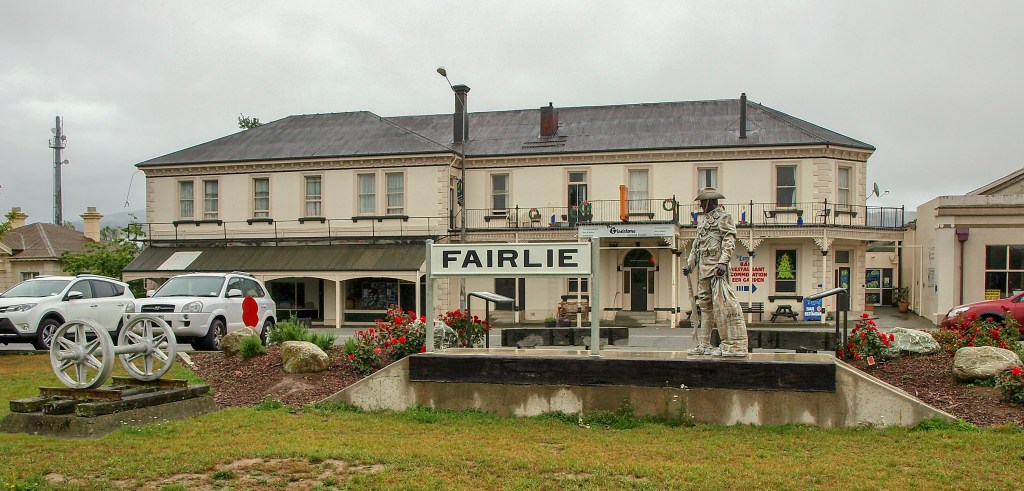
Some folk might have been tempted to head into the Fairlie Gladstone Hotel for a cold one and a long yarn as the place is an old-school type hotel and friendly locals with time on their hands. The N.Z. Historic Places Trust lists this hotel as a Category 2 Historic Place. It was originally built in 1884, and the stables beside it in 1906.
Tooting back in History
If you can remember, back to the days of black and white television and when Ena Sharples was scaring the patrons of the Rovers Return. In N.Z., there were what they called “fillers” interspersed throughout the television show. The filler was referred to as a muscak with no spoken words, just the sound of a train called the Fairlie Flyer tooting itself from Timaru to Fairlie. It was light relief before the grating sound began the start of another episode of Coronation Street.
The Fairlie branch railway line was opened in stages between 1874 and 1884, and for a while, it was so well used that there was a dedicated daily passenger train, the Fairlie Flyer. This ended in 1930 when increasing numbers of passengers opted to travel by road. However, a mixed passenger/goods train continued until 1953, when it became a goods-line-only train, which ended in 1968. They closed the line and ripped up the rails and the buildings – save for the 2.5 km section into Pleasant Point from the East. This is now used by the local railway society, which has a significant operation involving tow steam locomotives, passenger carriages and a Ford Model T- based railcar.
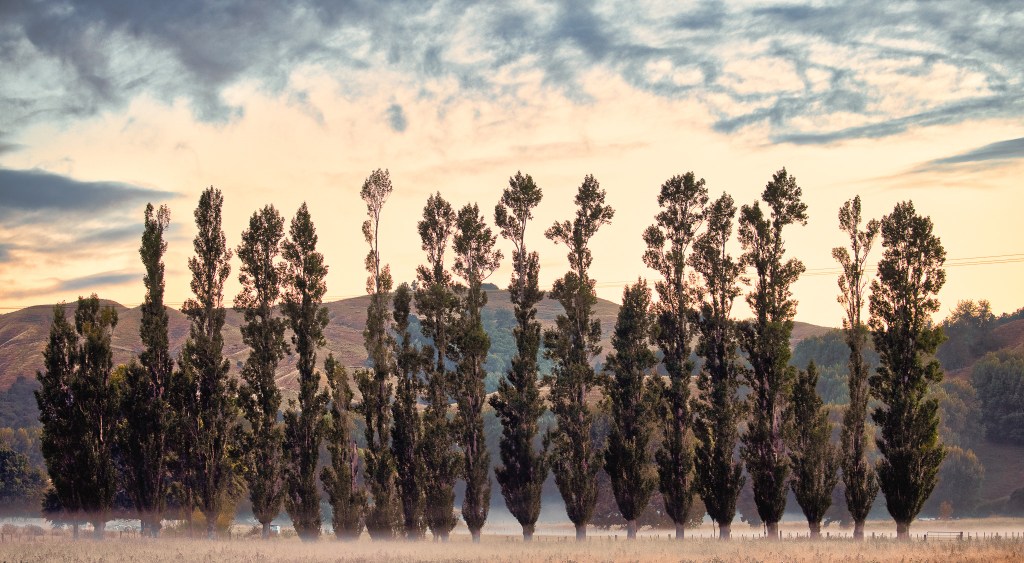
Then there is the ability to capture the night sky around the MacKenzie country without too much air population.
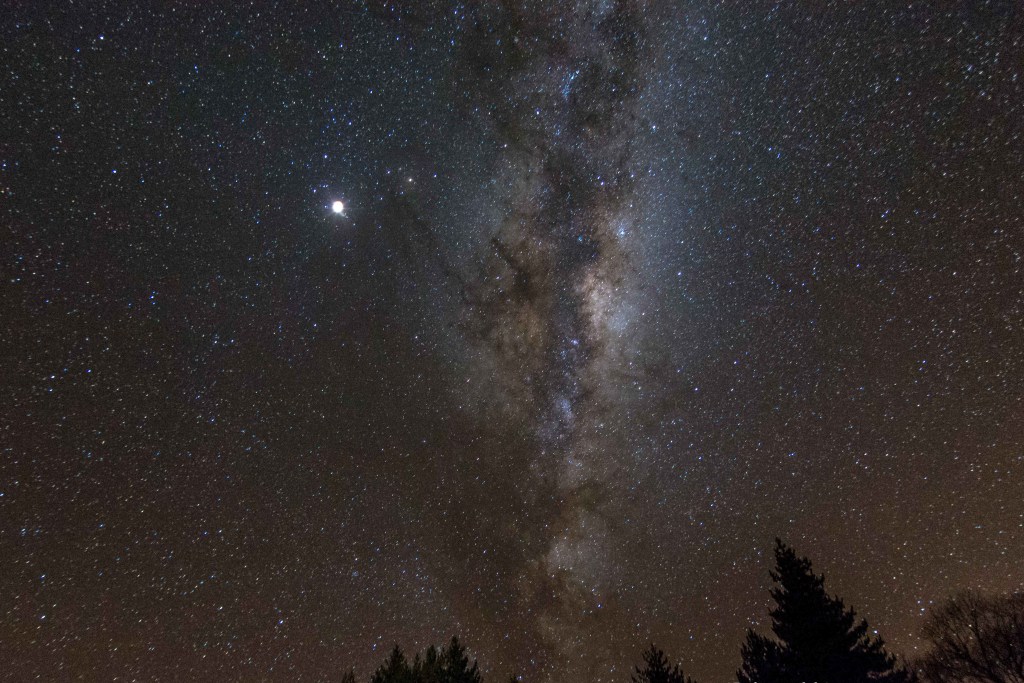
The next highlighted stop requires a reasonably long journey up the Motu, which includes a ferry ride over a ditch into the North Island (Te Ika-a-Māui).


Pie is an important component to any road trip. Even Jack Kerouac made a case for it. I consider pie and milk a healthy lunch. The train story you relate is similar to the train story in my remote valley. Once the towns (each a day apart from the next by horse and stagecoach) were connected by trains. When I am traveling in Europe I appreciate that they still are.
LikeLiked by 1 person
Funnily enough we are basically vegetarians now and no longer eat pies or go on roadtrips. We did enjoy both and the pie was a treat food back then. Yes, travelling via train is bliss though we did get stuck in Italy with no airconditioning for hours and having to change trains. That was interesting. I appreciate small towns as it takes more energy by the locals to keep it a float during hard financial times like what the world is experiencing now. Thanks for the information regarding your area, Martha, it is appreciated.
LikeLiked by 1 person
Pie over here is usually fruit! 🙂
LikeLiked by 1 person
Blueberry Pie yummy 🙂
LikeLiked by 1 person
Yes!
LikeLiked by 1 person
More fascinating information – but lacking what is a Fairlie pie 🙂
LikeLiked by 1 person
Thanks, Derrick. A pie with a reputation 😊 https://www.mackenzienz.com/52-reasons/fairlie-bakehouse/
LikeLiked by 2 people
Thanks very much, Suzanne. I see – a range that would suit me nicely
LikeLiked by 1 person
Wow. After clicking the link and seeing the pie, I’m hungry. And that picture of the night sky is simply gorgeous.
LikeLiked by 1 person
Thanks, Jennifer. Pies are a popular choice in N.Z. for many.
LikeLiked by 1 person
I love the idea of planting trees to remember victims of war. Lovely photos, Suzanne, especially the night sky.
LikeLiked by 1 person
Thanks, Cathy. I was fortunate to head out with someone who taught me how to capture the night skies.
LikeLiked by 1 person
I do like the idea of planting trees as an alternative to a war memorial, yes. And what a stunning image of the night sky! I also like that line of poplar trees 🙂
LikeLiked by 1 person
Thanks, Sarah. Yes, it is a great idea. It’s not the most enthralling town, as I’m trying to avoid the most obvious tourist destinations. I had a few lessons years ago in capturing the night skies.
LikeLiked by 1 person
Gorgeous photos of a place I’d never heard of, I thought the same as Cathy too, planting trees instead of statues. Lovely idea
LikeLiked by 1 person
Thanks, Alison. I’m avoiding the more popular destinations to give people a glimpse into some of our more ordinary towns. Trees make a place more liveable and sustainable.
LikeLiked by 1 person
That’s a great idea
LikeLiked by 1 person